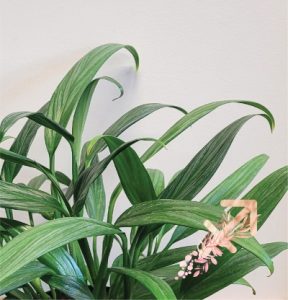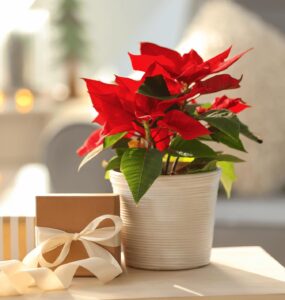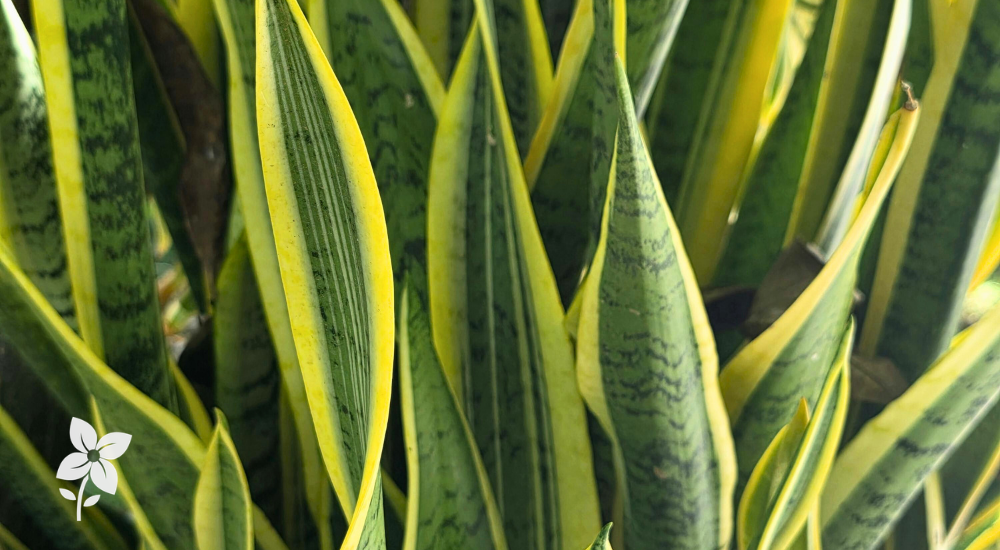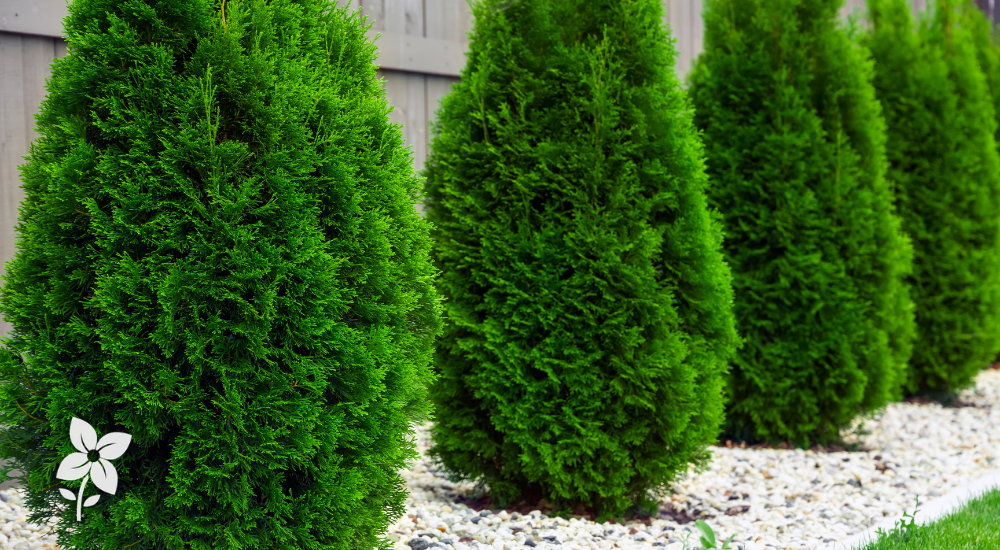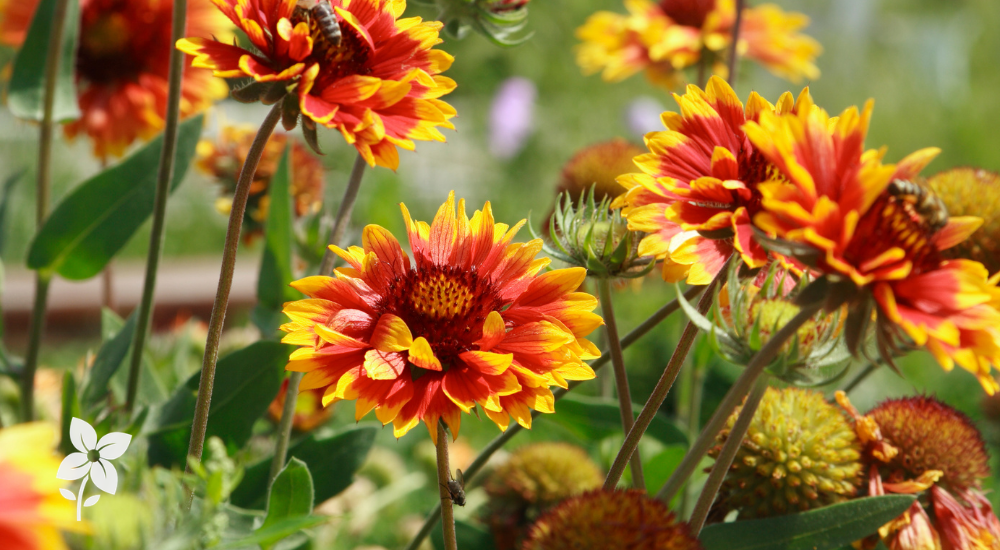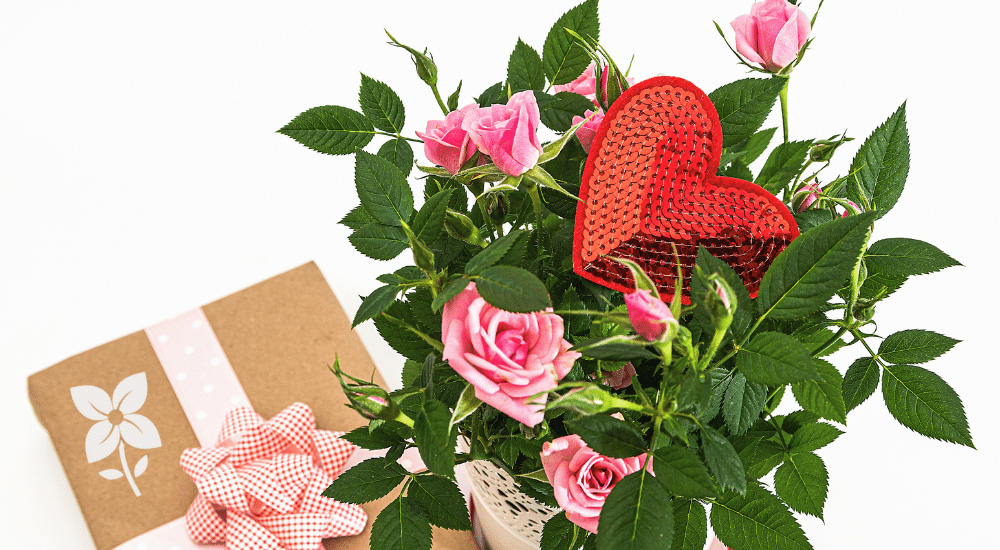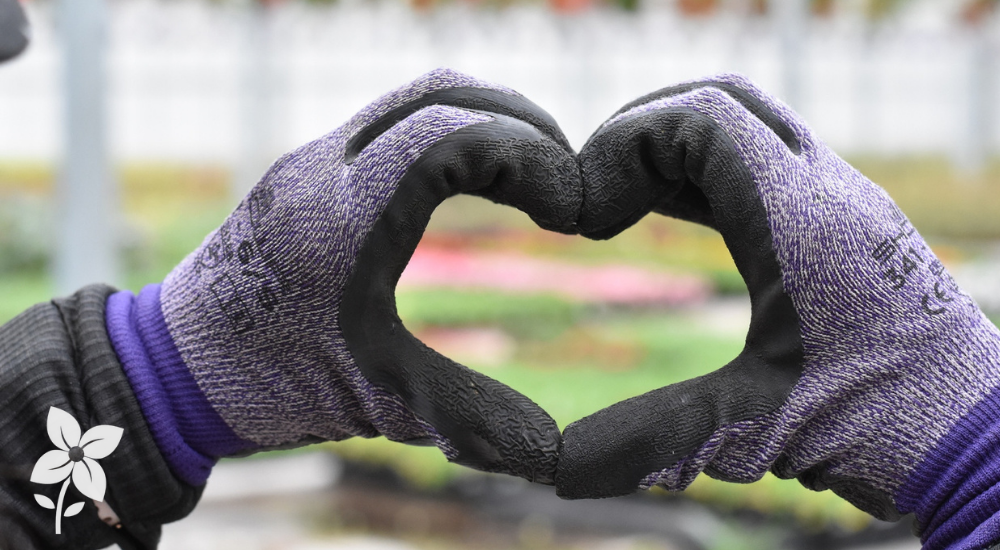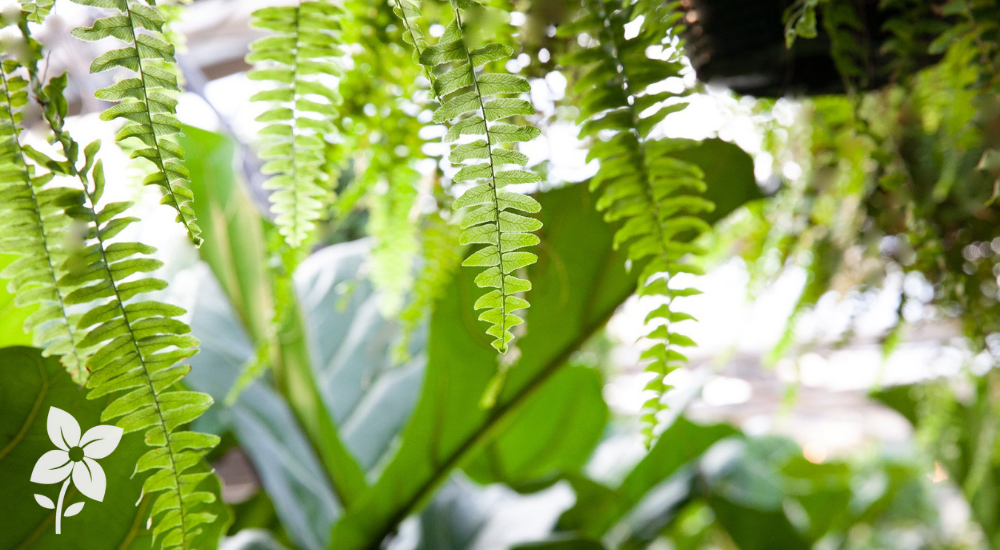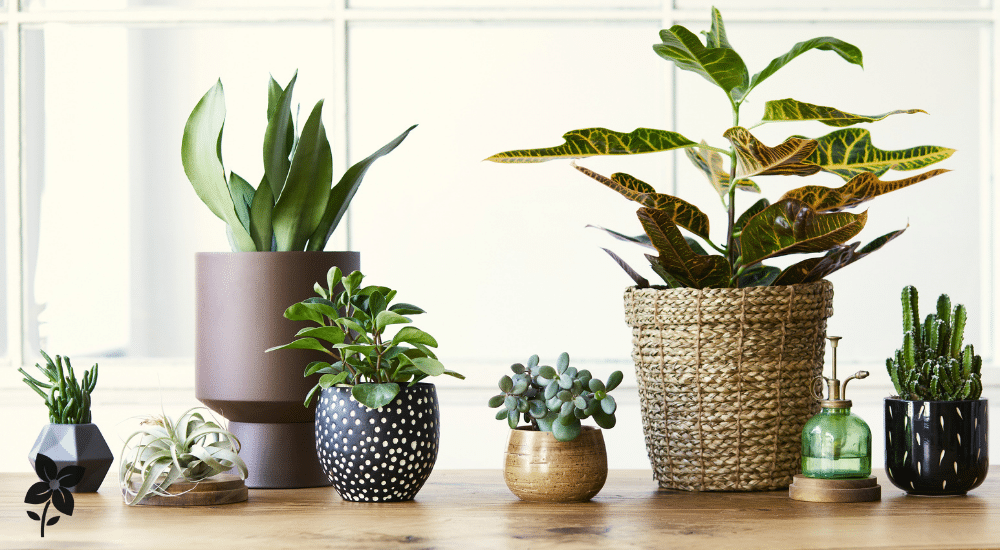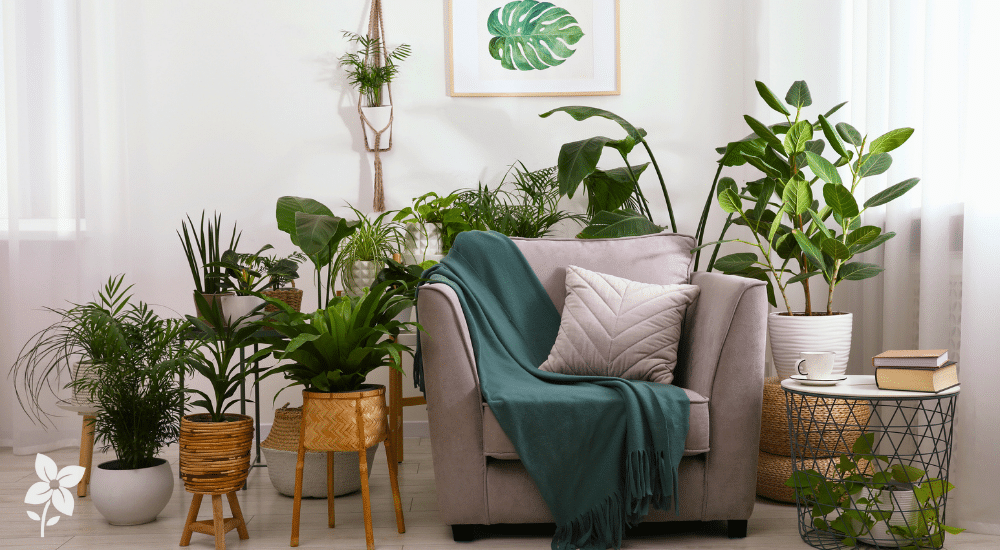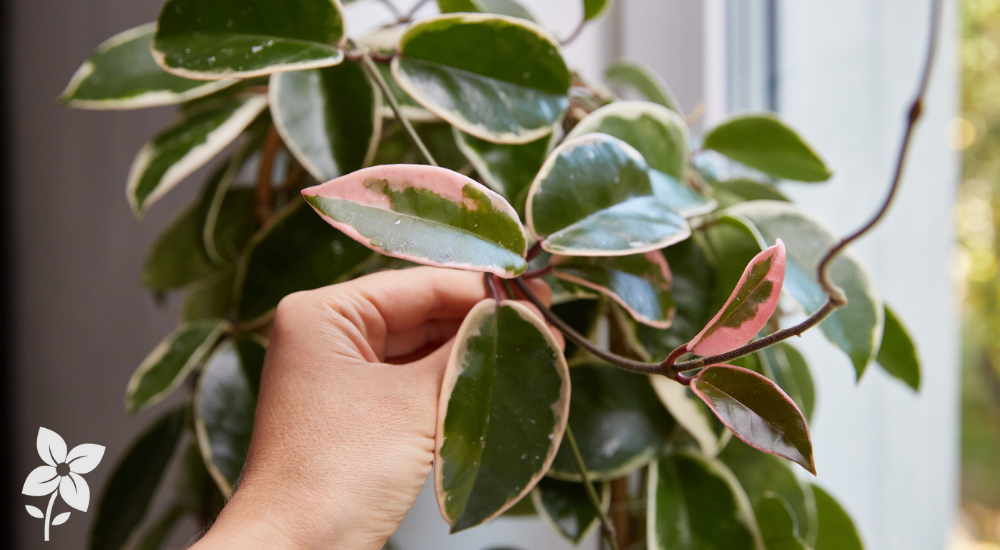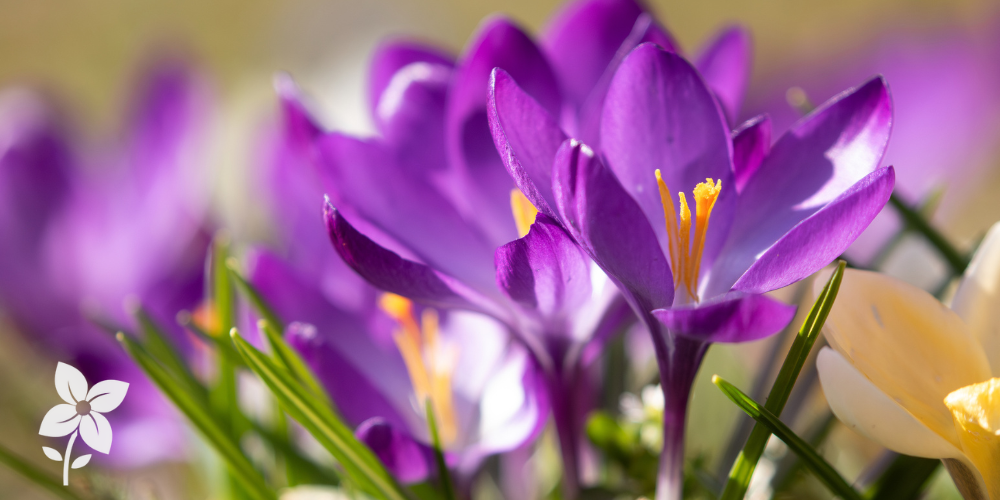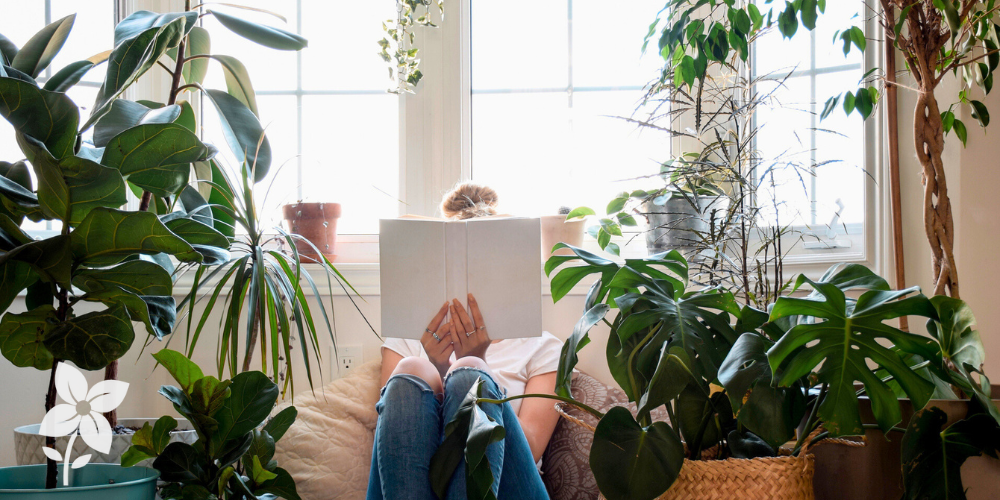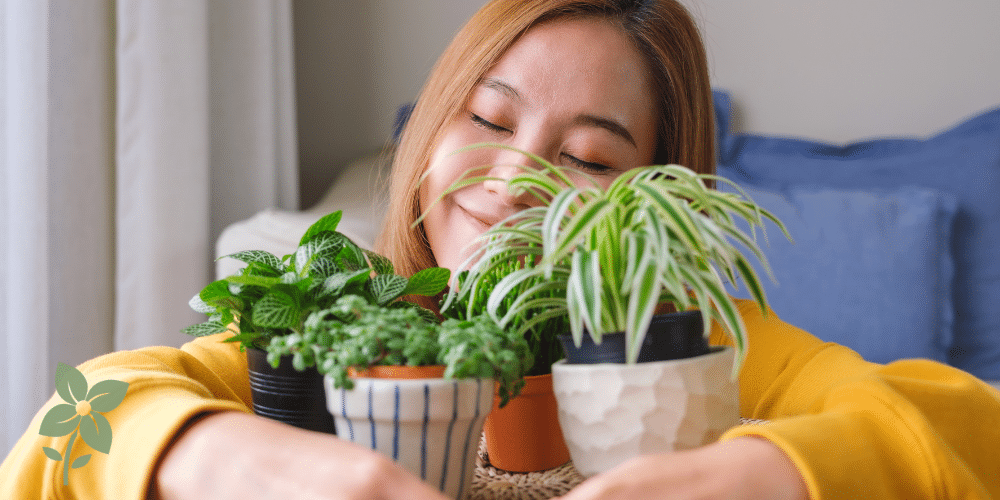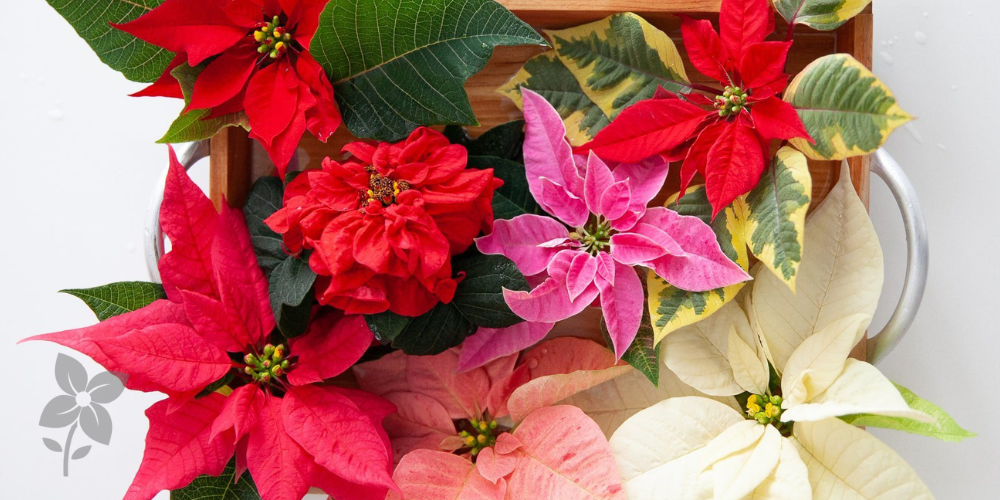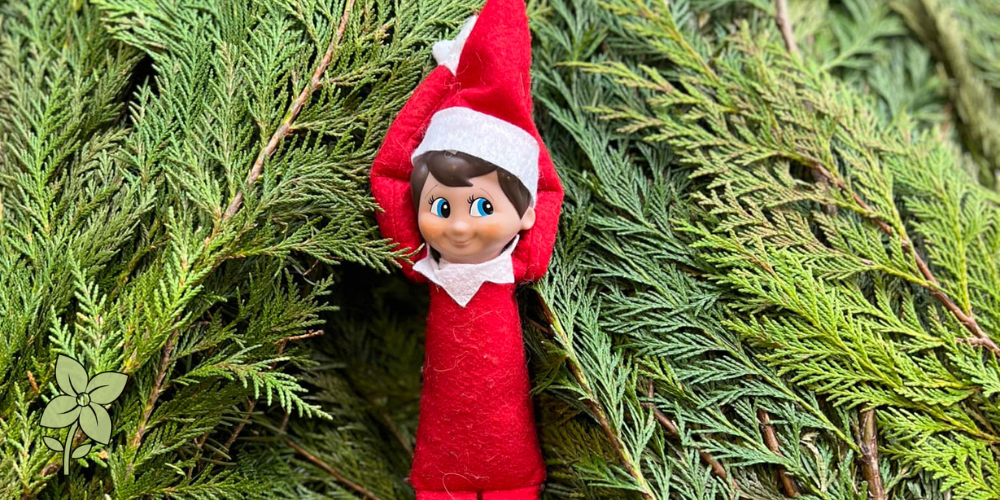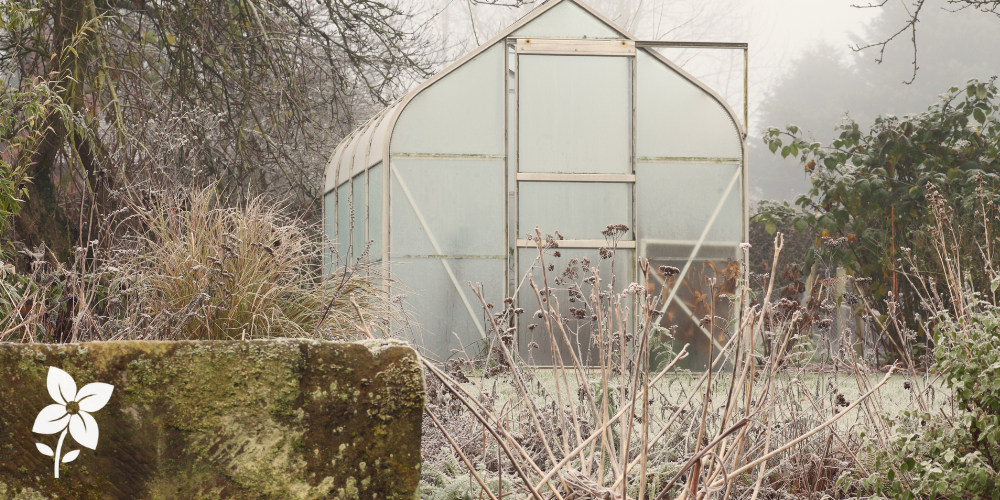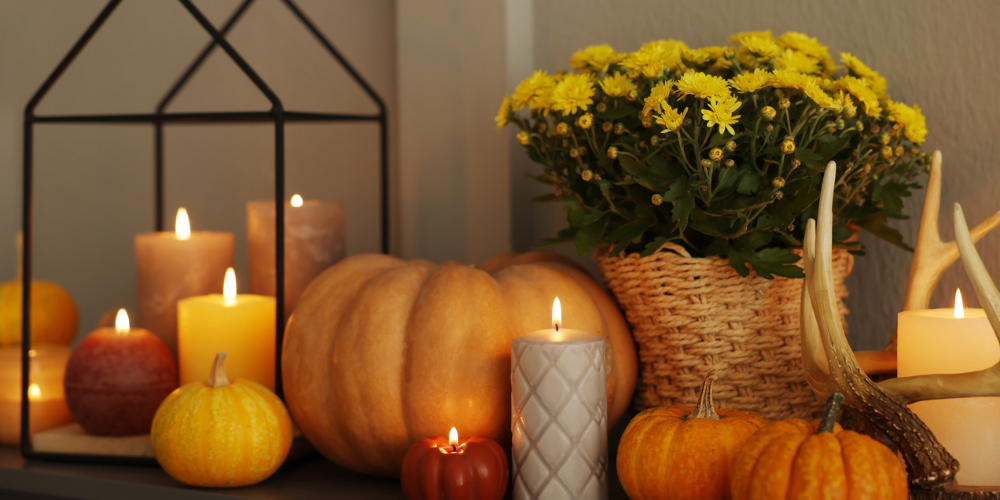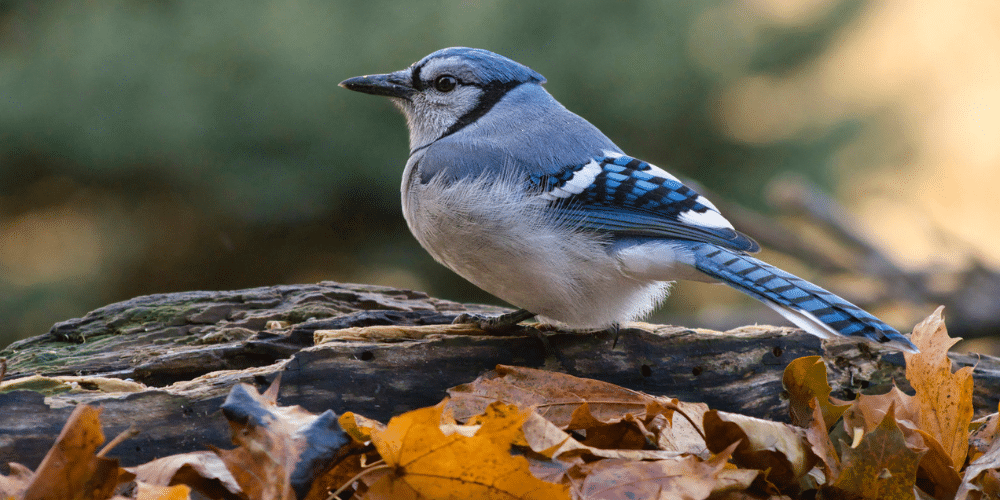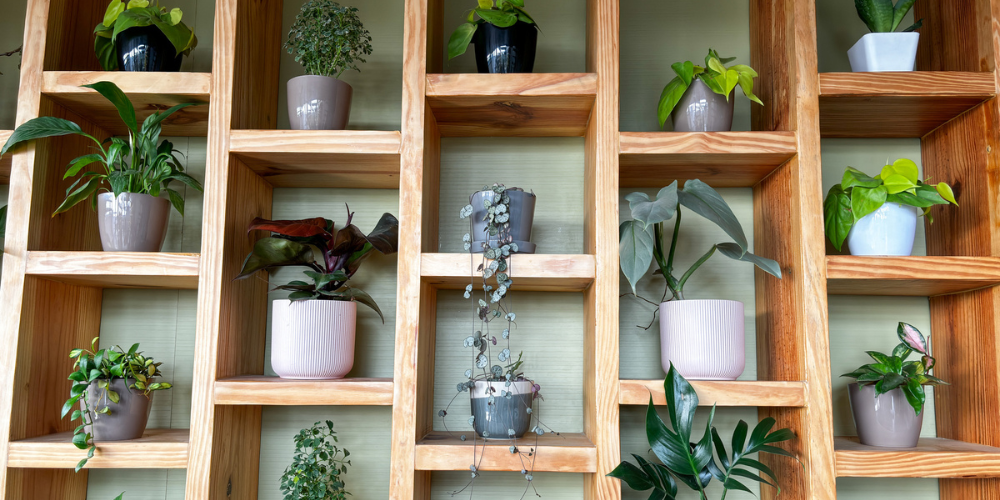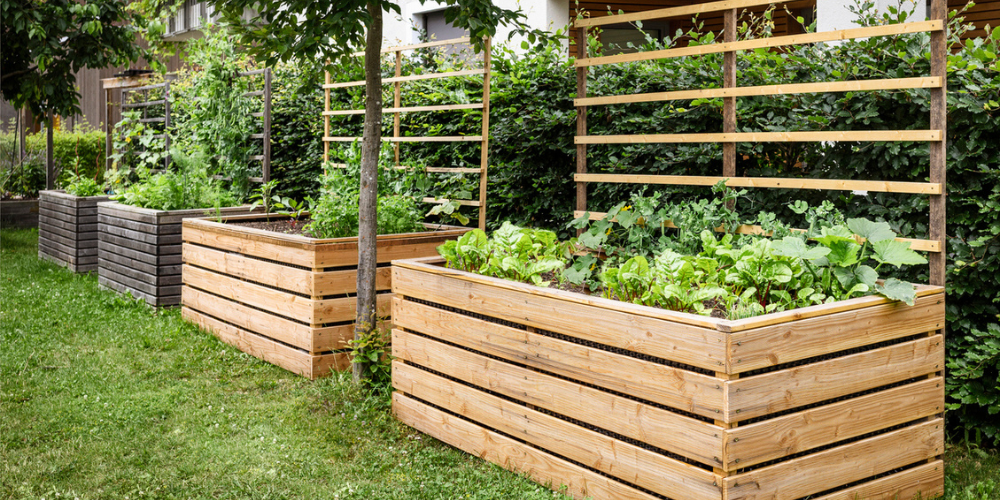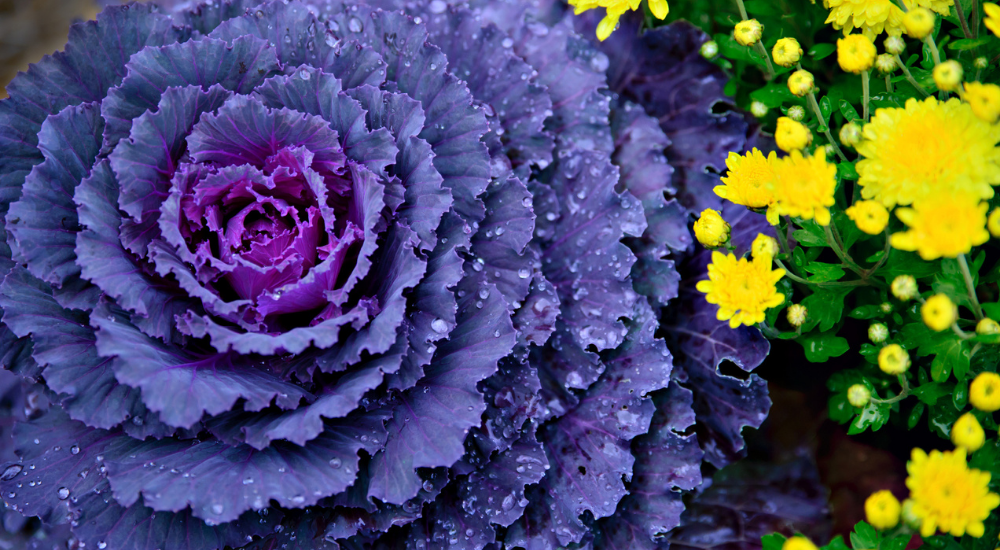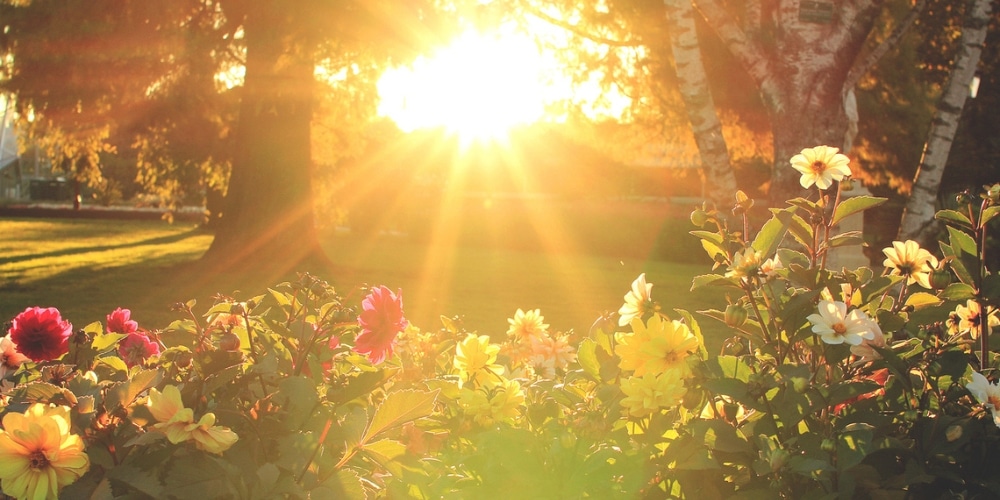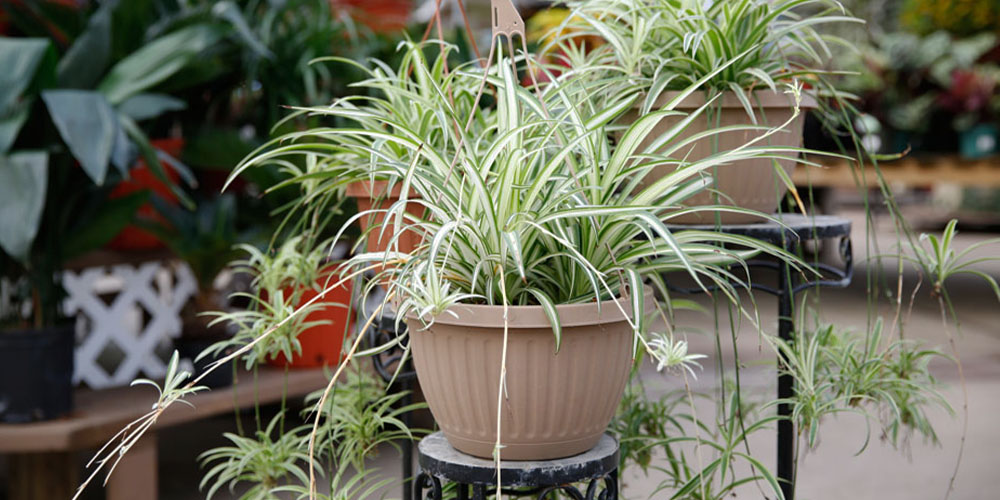
There are many reasons to bring a spider plant into your home: they’re simple to care for, have a knack for cleaning indoor air, and are a fantastic pet-safe option. While their sprawling appearance may seem intimidating at first, we promise they’re not as scary as they look! Read on to learn everything you need to know to confidently bring a spider plant into your home today.
Are Spider Plants Easy to Care For?
Yes! Spider plants are ridiculously easy to care for, making them great indoor houseplants. They don’t need to be watered, fertilized, or pruned as often as other higher-maintenance plants, though they are good extra care practices to consider.
Here are a few other tips and tricks to help you best care for your new spider plant:
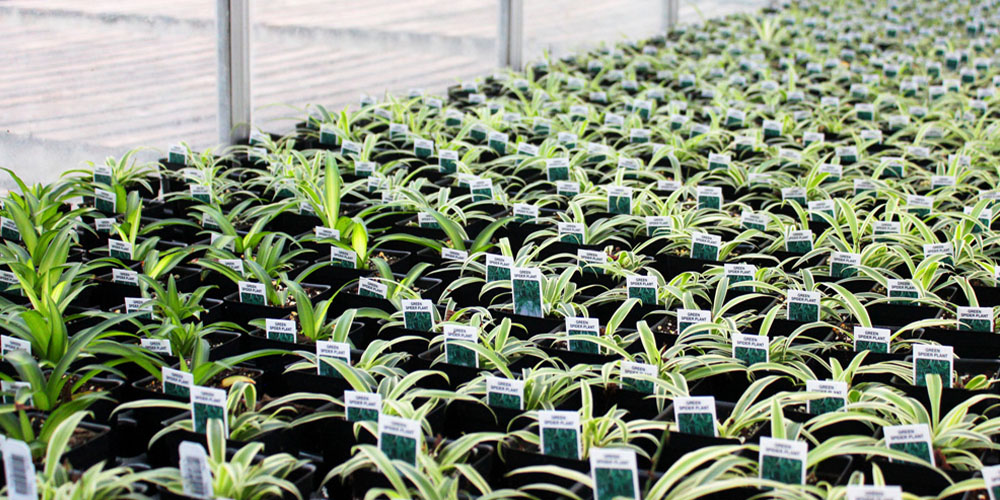 Temperature
Temperature
As an indoor houseplant, spider plants thrive in temperatures between 13″“27 °C. They can survive in temperatures as low as 5 degrees Celsius, though we do not recommend keeping them in such conditions for long as it will affect their growth. In the summer months, feel free to move your spider plants outside to a patio with lots of sunlight, but don’t forget to bring them back in before it gets too chilly.
Water
While spider plants are very forgiving when it comes to over or underwatering, we recommend watering them at least once a week, or whenever the soil loses 50-75% of its moisture. A good rule of thumb is to feel the soil: if it feels dry to the touch, your spider plant could probably use some water. If it still feels moist, your plant’s probably okay for another day or two. You may also want to mist your plant’s leaves every couple of days to keep them looking fresh.
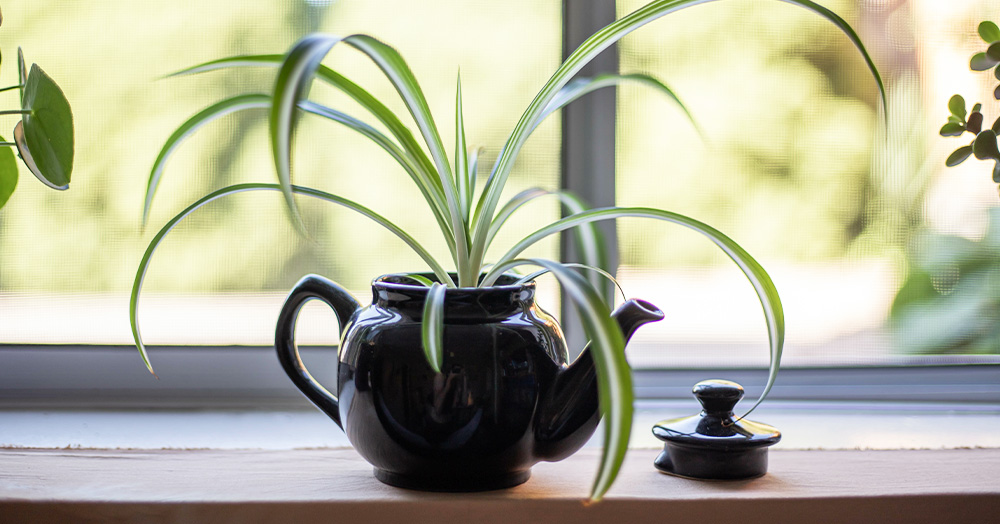
Sunlight
Spider plants love indirect sunlight: place your plant in a light shade environment outdoors or near a bright, well-lit window in your home, and you’ll be rewarded with gorgeous showy foliage and a healthy houseplant. Be careful not to overdo it, however. Too much sunlight can burn your spider plant’s leaves, causing brown spots and tips. If no such places exist in your home, or they’re already chock full of plants, fear not: most spider plant varieties can tolerate low light conditions, but remember that plants receiving more light will grow faster.
Soil
Potting mixes with good drainage and that retain moisture well are best for spider plants. For best results, choose a soil mix that’s moderately acidic, preferably with a pH level between 6.0″“7.0. You may also want to enrich your soil using peat moss, perlite, or sand mixed with pine bark fines when potting and repotting your spider plants.
Pest Care
Spider plants are vulnerable to attack by aphids, mealybugs, and spider mites, among other garden pests. However, combatting these nuisances is as easy as misting your plants and shaking them from the spidery-legged foliage. You can also use an organic insecticidal soap which you can find at either of our locations.
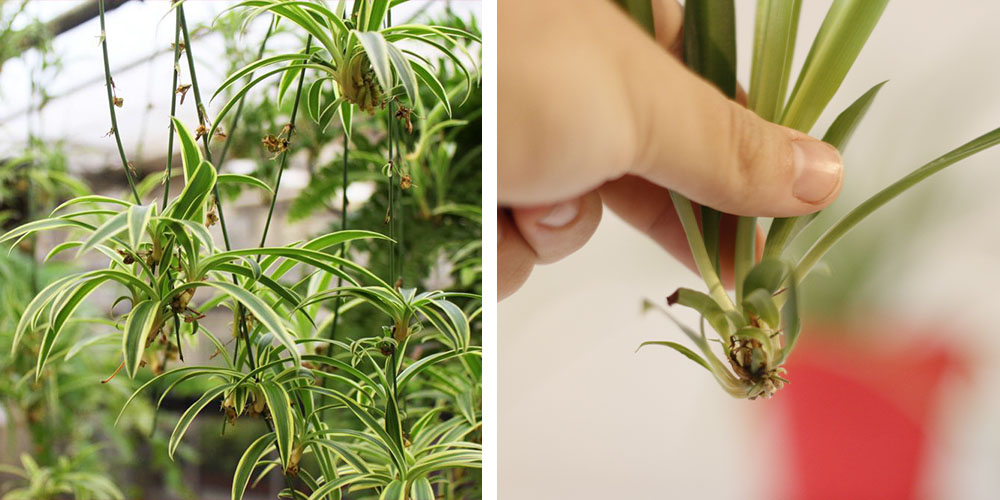
A Few Fun Facts About Spider Plants:
- Spider plants are one of the most popular indoor plants.
- The showy, fleshy roots and variegated foliage of spider plants make them excellent for decorating interior areas!
- As one of the best air-purifying plants, spider plants eliminate harmful chemicals and other pollutants from the air, including carbon monoxide, xylene, formaldehyde, and toluene.
- Spider plants are symbolic of good health and fortune!
- Healthy spider plants can usually live for about 20 years, though some have managed to make it as old as 50.
A Home for Your Houseplant: Hanging vs. Potted Spider Plants
Spider plants are a great way to add greenery around your windows by hanging them in baskets in areas where they’ll receive bright, indirect sunlight. However, if your window faces west or south, you’ll want to place a sheer curtain between the plant and the window to keep it safe from leaf burn.
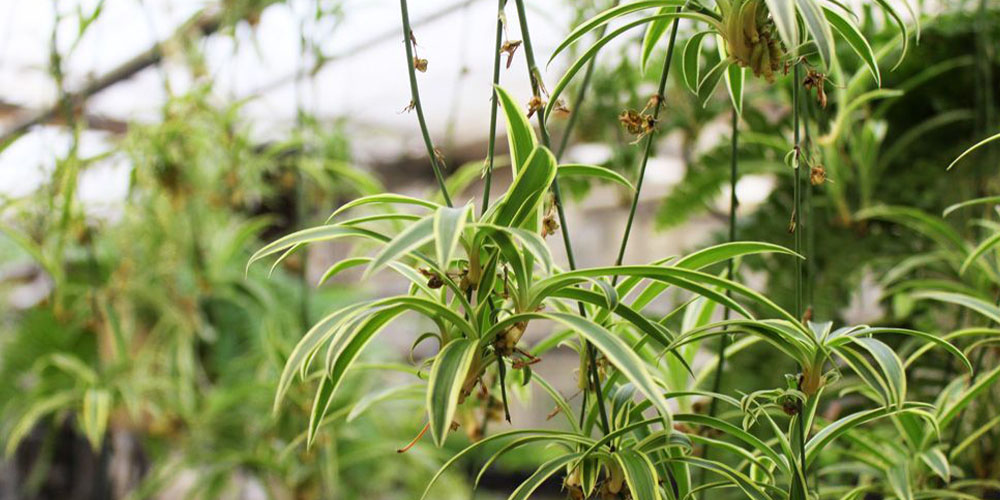
Spider plants are also gorgeous when planted in a pot, where you can move them to brighten up any room in your home. It’s best to plant spider plants in pots slightly larger than their roots to give them room to breathe and grow. Just make sure the one you select has sufficient drainage holes to prevent drowning your plant!
Remember: As long as you give it adequate water and sunlight, your spider plant will thrive regardless of the type of planter you put it in!
Looking to buy a new spider plant or add another to your collection? Visit us at Salisbury Greenhouse in Sherwood Park and St. Albert, Alberta, for gorgeous showy plants, trees, and shrubs, along with the materials and information you’ll need to maintain them!


